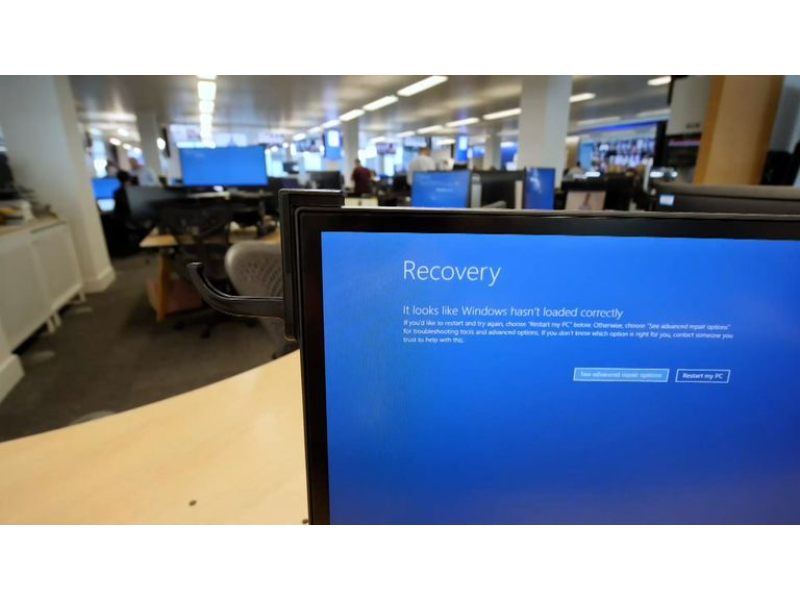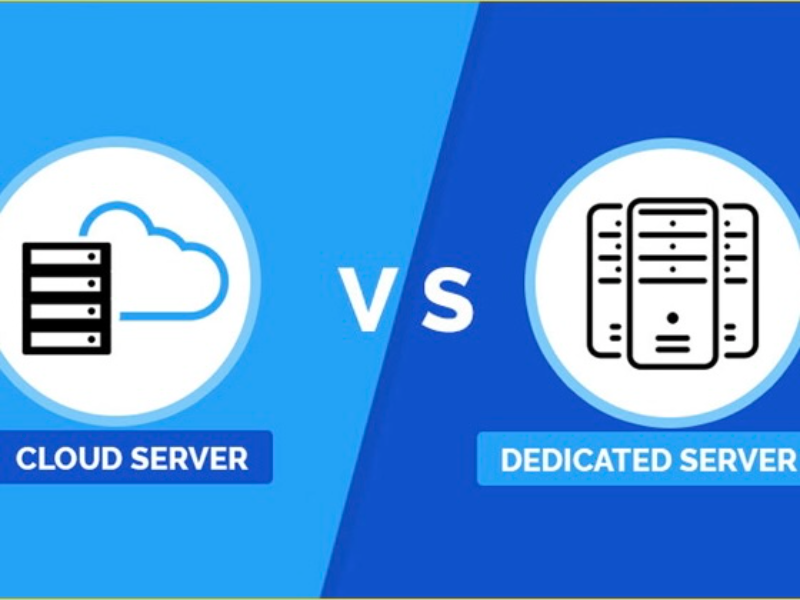- Bare-metal servers offer enhanced security and consistent performance, ideal for businesses handling sensitive data or requiring high-speed processing.
- Cloud services provide scalability and flexibility, beneficial for startups to avoid upfront hardware costs and enable rapid deployment, but can be costly long-term, as evidenced by 37signals’ $3.2 million annual expenditure.
- Hybrid approaches combine cloud and bare-metal benefits, optimising costs and control over critical operations and sensitive data, while mitigating risks associated with third-party providers.
- IPTP Networks provides solutions for seamless cloud connectivity and dedicated hosting.
Businesses nowadays often face a crucial decision: Should they opt for cloud services or invest in bare-metal servers and manage their own data centres?
Both options have unique benefits and challenges, and the right choice depends on your specific business needs, strategies, budget, and long-term goals. This decision is particularly important for enterprises that prioritise reliability, scalability, and cost-efficiency. Let’s take a look at the pros and cons of each to help you make an informed choice.
Advantages of bare-metal servers
Bare-metal servers, also known as dedicated physical servers, provide complete control over hardware and network configurations. This level of control enhances security and ensures consistent performance, which is vital for businesses handling sensitive data or requiring high-speed data processing. Companies like Ahrefs and Plitch have effectively utilised bare-metal servers to meet their stringent security and performance requirements while managing costs.
The long-term cost savings of bare-metal servers can be substantial, especially for companies committed to self-hosting. This approach includes not only private cloud solutions or colocation but also full self-maintenance, such as renting or building their own data centres. By avoiding recurring rental fees and cloud markups, businesses can save significant amounts over time. Ahrefs’ experience highlights this point: Their colocation setup in Singapore proved far more economical than an equivalent AWS configuration, saving hundreds of millions in potential cloud costs.
Also read: Exploring server virtualisation: What it is and key types
Also read: How to build an internet server?
Challenges
However, the initial investment in bare-metal servers can be significant. Purchasing hardware, setting up infrastructure, and maintaining it requires considerable capital and expertise. This upfront cost can be a barrier for startups and small businesses, making the cloud a more attractive option for the early stages.
Scalability is another challenge. While the cloud offers seamless scalability, expanding a bare-metal setup involves purchasing and configuring new hardware, which can be time-consuming and costly. This limitation makes bare-metal servers less ideal for businesses with rapidly changing workloads or those needing quick global expansion.
Also read: What is iCloud automator and what are the benefits?
Risks of relying on third-party CDN infrastructure
An often overlooked aspect of cloud computing is the reliance on third-party Content Delivery Network (CDN) providers. While CDNs offer significant benefits in terms of faster content delivery and global reach, they also introduce a potential point of vulnerability. A notable example occurred on 8 June 2021, when the CDN provider Fastly experienced an outage.
For just 59 minutes, major websites such as Amazon, Reddit, Twitch, and PayPal were down due to Fastly’s service disruption. The impact was immediate and costly. During this short period, Amazon alone lost an estimated $34 million in sales. To put this into perspective, Amazon generates around $9,615 in sales per second, and such an outage not only affects revenue but also customer trust and brand reputation.
This incident highlights the inherent risk of depending on external CDN providers. Despite their robust infrastructure and quick resolution capabilities, any downtime can lead to significant financial losses and operational disruptions. For businesses heavily reliant on e-commerce or digital services, even a brief outage can have long-lasting consequences.
Also read: X outage briefly disrupts service before swift recovery
Also read: Chinese firms seek US chips via Amazon cloud
Concerns with third-party cloud-based security solutions
Another critical area of concern is relying on third-party cloud-based security solutions. While these services can provide comprehensive protection, they also represent a single point of failure if something goes wrong. This was starkly illustrated on 19 July 2024, when a faulty update from the cybersecurity provider CrowdStrike caused a global outage.

Thousands of Windows machines experienced a Blue Screen of Death (BSOD) issue, impacting banks, airlines, TV broadcasters, supermarkets, and many other businesses worldwide. The update from CrowdStrike, which is widely used for managing the security of Windows PCs and servers, knocked affected machines offline and forced them into a recovery boot loop, preventing them from starting properly.
The outage affected numerous critical services. UK broadcaster Sky News was unable to broadcast its morning news bulletins, and airlines like Ryanair faced significant disruptions. Even emergency services were impacted, with many 911 call centres in Alaska going offline. The root cause was traced back to an update to the kernel-level driver used by CrowdStrike, which caused the widespread BSODs on Windows hosts.
This incident underscores the potential risks of relying heavily on third-party security providers. While CrowdStrike quickly identified and reverted the faulty update, the damage was already done, and the recovery process was complex and time-consuming for IT administrators. Businesses must weigh the benefits of comprehensive cloud-based security solutions against the risks of such critical dependencies.
Also read: CrowdStrike faces fallout from Windows outage
The case for cloud computing
Cloud computing has revolutionised IT by providing unparalleled scalability, flexibility, and ease of deployment. Companies like Expedia have harnessed the power of the cloud to manage vast amounts of data and ensure global availability. The ability to deploy servers within minutes is transformative for businesses needing to scale quickly or operate in multiple regions.
Advantages for startups and small businesses
The cloud’s pay-as-you-go model allows startups and smaller companies to avoid significant upfront investments in hardware. Instead, they can allocate funds to other critical areas of growth. This flexibility and low initial cost enable fledgling businesses to experiment and pivot without substantial financial risk.
Hidden costs of long-term cloud usage
However, these benefits come with potential downsides. As David Heinemeier Hansson of 37signals discovered, long-term cloud usage can become very expensive. Despite initial promises of cost-efficiency, many businesses find their cloud bills increasing as they scale. Heinemeier Hansson’s company faced a $3.2 million annual cloud expenditure, prompting a strategic shift back to bare-metal servers. The unexpected costs and potential for over-provisioning make meticulous cost management essential for businesses relying on cloud services.
Security considerations
Security is another critical factor. While cloud providers invest heavily in security measures, some companies prefer the control and perceived safety of managing their own infrastructure. Ahrefs, for example, avoided the cloud primarily due to concerns about data security and cost. They found that their own colocation data centre not only provided better control over sensitive data but also resulted in significant financial savings—around $400 million over 2.5 years.
Additionally, research shows that about three-quarters of companies prefer trade secrets over patents for their R&D outputs. This preference highlights the importance of keeping proprietary information confidential. Storing trade secrets on someone else’s cloud, especially with large companies like Amazon, which have been accused of intellectual property theft, adds a significant layer of risk that many businesses are unwilling to accept.
Also read: What is interoperability in cloud computing?
Also read: What is retail colocation? A guide to shared data services
Finding the right balance: Hybrid approach
Ultimately, the decision between cloud and bare-metal servers depends on a company’s specific needs, financial situation, and strategic goals. Startups and businesses with fluctuating workloads may find the cloud’s flexibility and lower initial costs appealing. Established companies with stable, predictable workloads might benefit more from the long-term cost savings and control provided by bare-metal servers.
A hybrid approach can also offer the best of both worlds. Companies can leverage the cloud for specific needs, such as rapid deployment and global reach, while relying on bare-metal servers for core infrastructure and sensitive data. This strategy allows businesses to optimise costs, maintain control over critical operations, and scale effectively.
Businesses must periodically reassess their infrastructure strategies. The key lies in understanding the unique advantages and limitations of each option and aligning them with business objectives. Whether opting for the cloud, bare-metal servers, or a combination of both, informed decision-making will ensure a resilient and cost-effective IT infrastructure for the future.
Discover IPTP Networks solutions
At IPTP Networks, the challenges businesses face when selecting the ideal IT infrastructure are well understood. That’s why IPTP Networks offers a variety of services designed to provide flexibility, control, and cost-efficiency.
Also read: How IPTP Networks overcame Red Sea cable crisis with terrestrial solutions
Also read: Interview with Vladimir Kangin, CEO at IPTP Networks, and a 28-year voyage from USSR to Cyprus
Direct connection to cloud providers
For businesses utilising cloud providers to host their networks across various locations but seeking enhanced network performance, IPTP Networks offers seamless connections between cloud nodes via a truly global network. Experience low latency, high reliability, and secure connections to ensure smooth business operations. In addition, IPTP Networks can activate 75 data centre locations simultaneously, thanks to a ready server hosting infrastructure.
Dedicated hosting
For businesses requiring dedicated physical servers, IPTP Networks provides comprehensive dedicated hosting solutions. Enjoy complete control over hardware, enhanced security, and consistent performance. These dedicated hosting services are customised to meet specific needs and ensure long-term cost savings. Furthermore, IPTP Networks can activate dedicated server hosting in 75 data centres worldwide at once, leveraging a ready physical server base.
Edge computing
Position servers closer to end-users to reduce latency and improve performance. IPTP Networks’ edge computing solutions help manage distributed devices and ensure optimal connectivity across the globe.

